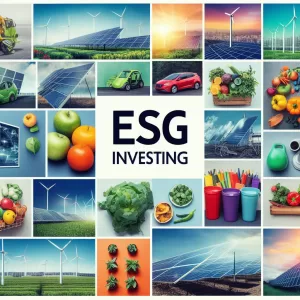Mitigating Risks in ESG Investments: A Practical Guide

While Environmental, Social, and Governance (ESG) investments offer the potential for both financial returns and positive societal impact, it’s crucial for investors to be aware of and actively manage associated risks. This article serves as a practical guide, outlining key risk factors in ESG investing and providing insights into effective risk mitigation strategies.
Greenwashing Concerns
Greenwashing, where companies exaggerate or falsely claim their commitment to ESG principles, poses a significant risk. Investors need to be vigilant in discerning genuine ESG efforts from mere marketing tactics. Scrutinizing a company’s ESG reporting, certifications, and third-party evaluations can help mitigate the risk of falling prey to greenwashing.
Regulatory and Policy Risks
The regulatory landscape surrounding ESG is rapidly evolving. Changes in government policies or regulations can impact the profitability and sustainability of ESG investments. Staying informed about regulatory developments and engaging with companies that demonstrate adaptability to regulatory changes is essential for risk management.
Lack of Standardization
The absence of standardized ESG metrics can complicate the assessment of a company’s performance. Investors may encounter challenges in comparing ESG data across companies and industries. Recognizing this lack of standardization, investors can diversify their information sources and consider industry-specific ESG benchmarks to gain a more accurate assessment.
Financial Performance Trade-Offs
Critics argue that prioritizing ESG factors may result in a trade-off with financial returns. While studies suggest a positive correlation between strong ESG performance and financial success, investors should be aware of potential short-term trade-offs. A well-balanced approach involves understanding the potential risks and rewards of ESG investments over various time horizons.
Supply Chain and Operational Risks
Companies with global supply chains may face ESG risks related to environmental degradation, labor practices, and geopolitical factors. Assessing a company’s supply chain and operational vulnerabilities helps investors identify potential risks and engage with companies to enhance resilience.
Reputational Risks
A tarnished reputation can significantly impact a company’s value. ESG investors should be attuned to potential reputational risks stemming from environmental disasters, social controversies, or governance failures. Regular monitoring and engagement with companies can help mitigate reputational risks.
As ESG investments become more mainstream, investors must navigate potential pitfalls to realize the full benefits of sustainable investing. By addressing risks related to greenwashing, regulatory changes, lack of standardization, financial performance trade-offs, supply chain vulnerabilities, and reputational issues, investors can build a more resilient and ethically sound investment portfolio. The subsequent articles will delve into success stories of companies excelling in ESG and provide recommendations for specific ESG investments.






